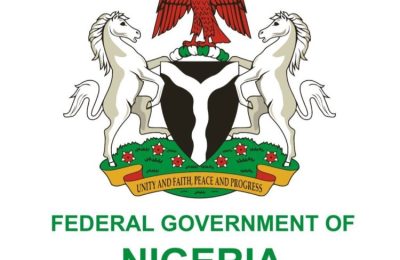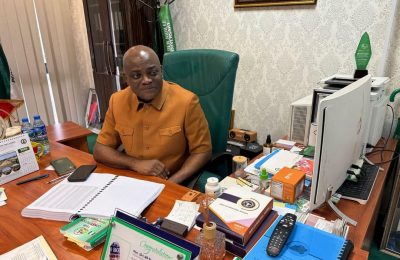Weyinmi Oritsejafor is a private client advisor at Henley and Partners, UK Ltd., a firm specialising in investment migration. She advises “savvy individuals and their families across the globe” about gaining residence or citizenship in their country of choice by assisting them to complete qualifying investments. An associate member of the Investment Migration Council, she spoke to ROTIMI IGE in this interview about investment migration and why it is important to have quality alternative citizenship.
Could you share with us the story of your background and how it led you to the fascinating world of investment migration?

I hold a BA (Hons.) in Financial Economics from Liverpool University and an MSc from Bayes Business School (formerly CASS Business School). I also hold a qualification in the culinary arts from Ashburton Cookery School and owned a thriving restaurant for four years. However, a desire to live a more impactful life led me to this path, where I can directly help families build their legacies. Understanding their aspirations through the lens of my own upbringing fuels my passion and dedication and this deep understanding fuels my success. Clients see my genuine enthusiasm and commitment, allowing me to effectively guide them through investment migration.
What does a typical day look like for you at Henley and Partners?
My days are a whirlwind of meetings with clients, potential clients and their advisors which often takes me in and out of the office. In between, I’m on training calls and catching up with my colleagues around the world. Public speaking at conferences and industry events adds another layer of excitement – no two days are ever the same.
How do you stay motivated and productive amidst a busy schedule working at the top global firm in residence and citizenship by investment?
My motivation is that I love what I do – the people I meet daily and speaking about a topic that I am passionate don’t make the work seem like work. Everyday is activity filled and knowing the difference our work makes to the lives of people inspires me to want to go above and beyond for my families.
Share with us the top countries on the investment migration list currently and why?
For residence-by-investment, Europe’s economic resilience, health security, and predominance of liberal democratic institutions have always made it an attractive investment destination for high-net-worth individuals globally. The most popular programs are Portugal Golden Residence Permit Programme, Malta Permanent Residence Programme, Latvia Residence by investment Programme, Greece Golden Visa Programme and Spain Residence by Investment Programme.
The most popular Citizenship-by-investment programmes among Nigerian investors are the Caribbean nations who offer excellent global mobility, with visa-free or visa-on-arrival access to over 140 countries each, including Singapore, the UK, and Europe’s Schengen Area, hence their popularity among Nigerian business people who travel frequently.
The Antigua and Barbuda Citizenship by Investment Program is the most popular followed by the St. Kitts and Nevis Citizenship by Investment Programme and the St. Lucia Citizenship by Investment Program and the Grenada Citizenship by Investment Programme. These Caribbean nations offer excellent global mobility, with visa-free or visa-on-arrival access to over 140 countries each, including Singapore, the UK, and Europe’s Schengen Area, hence their popularity among Nigerians.
The other popular option is Malta’s citizenship by naturalisation for exceptional services by direct investment process, which allows for the granting of citizenship by a certificate of naturalisation to foreign individuals and their families who contribute to the country’s economic development following a 36-month (or, by exception, 12-month) residence period for businesspeople who travel frequently.
What are the key benefits of citizenship-by-investment programmes for individuals and families and countries?
These programmess are an invaluable asset class in an international investor’s portfolio and provide affluent families with global mobility and as well expanded business, education, health-care, and lifestyle opportunities. The return on your investment includes the freedom to travel, live, and invest where you choose, enhanced security, and a hedge against potential volatility. In addition, many of the residence by investment programs allow successful applicants to apply for citizenship after a specified period. The number of programs is increasing steadily as governments tap into their potential to boost capital and talent inflows. All 19 sovereign countries in the G20 offer a mechanism to encourage inward investment in exchange for residence rights, and all 27 European Union member states provide non-nationals the right to reside in return for making an investment.
How important is it for high-net-worth individuals to diversify their citizenship and residency options?
Investment migration is not just about wealth creation, but it is also an intergenerational wealth preservation strategy. When it comes to preserving multi-generational wealth and future-proofing your family, you need to ensure you create both new opportunities as well as mitigate risks. Investment migration presents a solution to both of these factors. With an alternative residence or citizenship, families are given ultimate optionality — an array of opportunities for the next generation to study, live, work, and invest in countries of their choice. Future generations can grow their global networks and maximize their career and earning potential, as well as economic mobility, for greater success and prosperity across their lifetimes. Investment migration programs generally allow main applicants to include their spouse and children in their applications, making it easy for investors to transfer their assets to their children when the whole family shares jurisdictional rights. More than just a travel document, our passports can define our financial freedoms regarding access to international investment and business opportunities.” Investment migration is attractive to investors who intend to maximise and stabilise their profits by diversifying their activities across more reliable economies, making this kind of investment a form of insurance against global volatility. Securing greater access to the world’s economic output is vital to investors because it expands the basket of available products.
We’re eagerly anticipating your insights. What are the key takeaways from the Henley and Partners Africa Wealth Report 2024 that you believe Nigerian investors and families should pay close attention to?
The Africa Wealth report is the continent’s annual benchmark for private wealth research. Now in its 9th year, the report provides the most comprehensive review of the wealth sector in Africa, including trends among high-net-worth individuals, the luxury market, and wealth management. The Africa Wealth Report is published by Henley and Partners in partnership with South African wealth intelligence firm New World Wealth. Key takeaways from this years’ report are: There was a 45 per cent decline in millionaire growth in Nigeria between 2013 and 2023 but Nigeria still comes in third in Africa’s top 10 wealthiest countries with 8200 U.s dollar millionaires, 23 centi-millionaires and three billionaires.
The African Development Bank predicts that Africa will account for 11 out of the 20 fastest-growing economies in the world in 2024. And with a new global political order emerging, African voices are also being elevated in international decision-making bodies. Only two African passports — Mauritius and Seychelles — enable their holders to access more than 50 per cent of global GDP without having to obtain a visa in advance, despite the fact that the continent boasts some of the most open nations in the world on the Henley Openness Index when it comes to providing visa-free access to other countries. African visa applicants face far more severe restrictions compared to those from other regions, resulting in a disproportionately high rejection rate. Africa tops the list of rejections with 30 per cent or one in three of all processed applications being turned down, even though it had the lowest number of visa applications per capita. This was 12.5 per cent higher than the global average.







